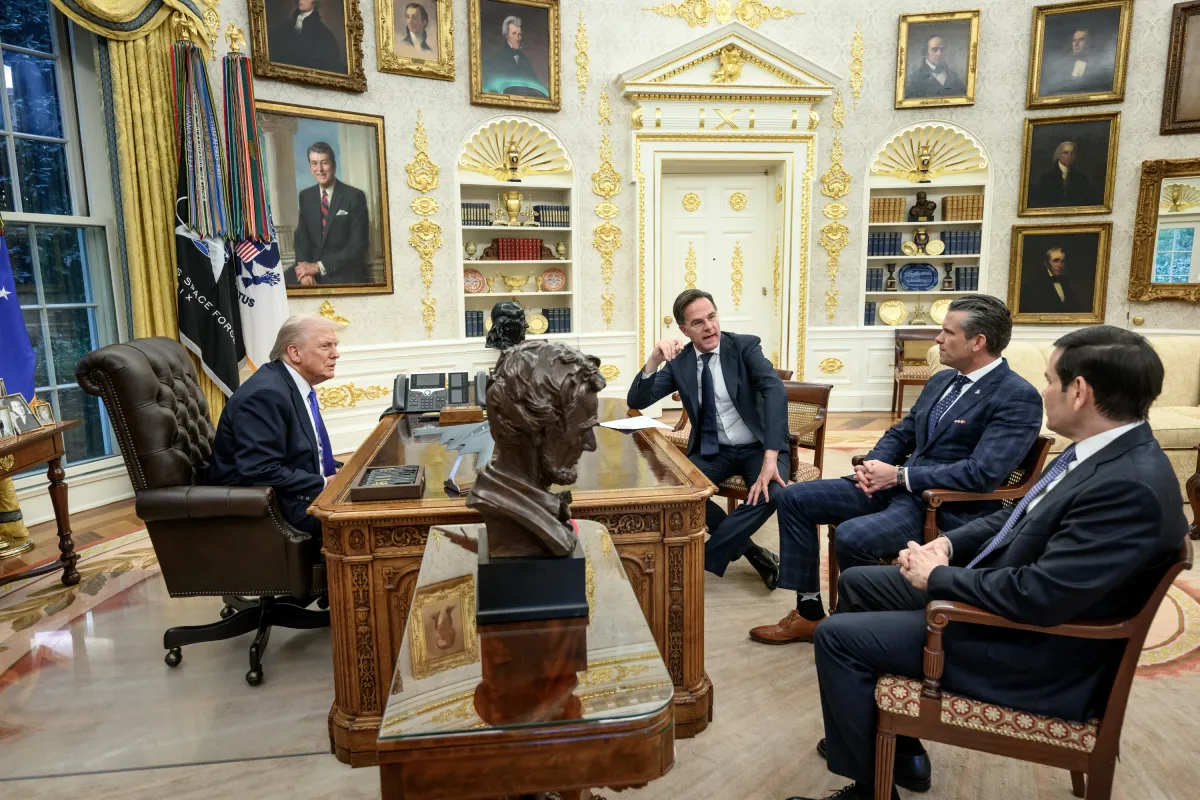The United States is drafting a proposal that weighs possible military engagement in Nigeria, a senior State Department official said this week. The move comes as a potential response to rising violence against Christian communities in a country long beset by terror and insecurity. The discussion follows threats from President Donald Trump about military action in Africa’s most populous country. He warned that action could be swift if persecution continues. The White House has kept its focus on religious liberty as a central objective, stressing that protecting worshippers and their right to live peacefully remains a strategic priority. The Trump administration is developing a plan to incentivize and compel the Nigerian government to better protect Christian communities and improve religious freedom, Pratt said Thursday. This plan will consider U. S. State and Treasury engagement on sanctions, as well as possible Department of War engagement on counterterrorism and other efforts to protect religious communities. These words frame a policy approach that blends pressure with potential partnership. At the same time, Defense Secretary Pete Hegseth and Chairman of the Joint Chiefs of Staff Gen. Dan Caine met with a Nigerian delegation led by national security adviser Mallam Nuhu Ribadu in talks at the Pentagon. This Could Be the Most Important Video Gun Owners Watch All Year Hegseth emphasized the need for Nigeria to demonstrate commitment and take both urgent and enduring action to quell the violence against Christians, according to a Department of Defense readout. The discussions reflect a willingness to pair diplomacy with deterrence if necessary. The White House asserts the president has made his position clear on the complex situation in the West African country, which has long suffered violence at the hands of terrorist groups and violent extremists. I think Nigerians have an opportunity to deepen and strengthen their relationship with the United States if they will prioritize the protection of these communities, Rep. Riley Moore said at a House hearing this week. Of course, non-Christians are being killed too, he added, but there is a systematic, targeted campaign that’s happening here. Trump, in a Truth Social post earlier this month, stated that if “Nigeria does not halt the alleged persecution of Christians, he may send troops guns a blazing to completely wipe out the Islamic Terrorists who are committing these horrible atrocities. I am hereby instructing our Department of War to prepare for possible action, the president wrote at the time. If we attack, it will be fast, vicious, and sweet, just like the terrorist thugs attack our CHERISHED Christians!” Nigeria has denied the accusations of persecution, calling the Trump administration’s characterization a gross misrepresentation of reality. Nigerian President Bola Tinubu has sought to balance temperature and policy, insisting there is religious tolerance while acknowledging security challenges that affect citizens across faiths and regions. He said he is committed to working with the United States and the international community to protect communities of all faiths in Nigeria. The dialogue underscores a broader strategy that the White House believes can safeguard religious liberties while signaling that violent actors cannot operate with impunity. Proponents argue that this approach aligns with American interests in stabilizing a volatile region and protecting vulnerable minorities. Opponents fret about mission creep, but supporters insist that decisive action is warranted to deter slaughter and protect freedom of worship. In this moment, the United States is signaling that religious freedom is inseparable from national security. The plan being developed seeks to align sanctions with counterterrorism measures and to strike a balance between restraint and readiness. Supporters argue that such calibrated pressure can yield measurable improvements in security and governance. They point to ongoing violence that has harmed communities across faiths and regions as a compelling reason to act. Critics may push back against any display of force, yet the administration contends that strategic leverage can create lasting change without prolonged conflict. The Nigerian government, for its part, has pledged continued cooperation with international partners to safeguard civilians. Still, the onus remains on Nigerian authorities to deliver real protection for believers at risk. As lawmakers consider how best to advance U. S. interests, the case for a robust yet prudent approach grows stronger. The emphasis on protecting religious communities resonates with broader American values while respecting the sovereignty of Nigeria and its democratically elected leadership. In short, the mission is defined as defending lives, not merely signaling intent, and that distinction matters when decisions about war and peace hang in the balance.
https://www.lifezette.com/2025/11/u-s-weighs-military-action-sanctions-to-shield-nigerian-christians-from-attacks/
U.S. Weighs Military Action, Sanctions to Shield Nigerian Christians from Attacks



